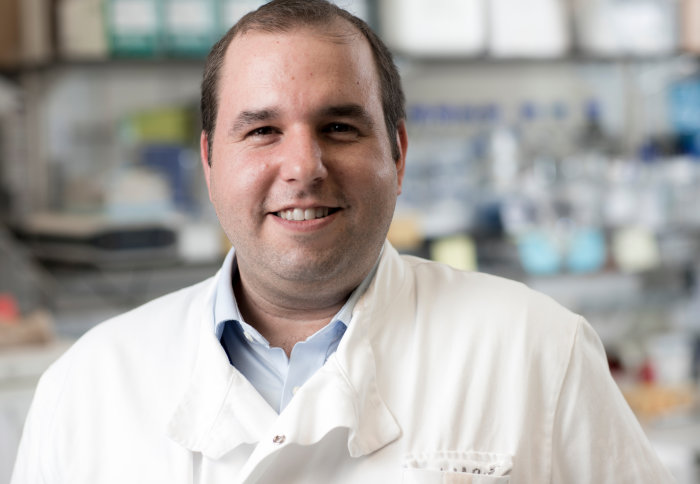Obituary: Dr Marcus Dorner 1980 – 2019
by Paul Farrell

Dr Marcus Dorner 1980 – 2019
Professor Paul Farrell pays tribute to the late Dr Marcus Dorner of the Department of Medicine.
Dr Marcus Dorner died suddenly in February 2019, aged 38. Marcus was a Senior Lecturer at Imperial College London and an internationally recognised leading scientist in his research field of hepatitis virus replication. In many parts of the world the hepatitis viruses are major causes of human disease, particularly viral hepatitis and primary liver cancers.
Marcus graduated in Chemistry at the Technical University of Munich in 2002 and completed his MSc in Analytical Chemistry and Biochemistry in Munich in 2005. He then successfully obtained his PhD in the laboratory of Professor David Nadal in Zurich in 2009. At that time Marcus worked mainly on another human virus, the Epstein-Barr virus. A definitive step in his career happened when he joined the laboratory of Professor Charles Rice at the Rockefeller Institute in New York for post-doctoral work (2009-2013). This was an exceptionally productive period and included publication of two outstanding Nature papers which determined the high research reputation that Marcus achieved and maintained throughout the rest of his career. In 2013, Marcus joined Imperial College London and developed his own research laboratory, where he pioneered novel systems to study replication of hepatitis viruses, and further developed the use of advanced mouse models to study the interaction of viruses with the host immune system.
A key problem with research and clinical development of novel treatments for hepatitis B and C viruses was that their replication was very poor in the usual laboratory systems – cell culture and standard laboratory animals. Marcus made major contributions to overcoming those problems. At Rockefeller, by identifying all the barriers to hepatitis C virus replication in laboratory mice, he was able to make several genetic modifications to the mice which resulted in completion of the entire hepatitis C life cycle in the mice. For hepatitis B virus in cell culture, his Imperial laboratory used novel 3D microfluidic liver cell cultures to obtain the full hepatitis B life cycle. In these cells, the innate immune and cytokine responses following infection mimic those observed in patients, allowing identification of pathways important for immune evasion and development of biomarkers.
Marcus was a popular member of staff who contributed fully to the College. He was a very good teacher, won many research grants and led a dedicated team of researchers and PhD students in his group. Marcus was also an enthusiastic research collaborator, bringing his skills with mouse systems to the study of a wide range of other viruses including HIV and Dengue. He will be greatly missed.
Article text (excluding photos or graphics) © Imperial College London.
Photos and graphics subject to third party copyright used with permission or © Imperial College London.
Reporter
Paul Farrell
Department of Infectious Disease